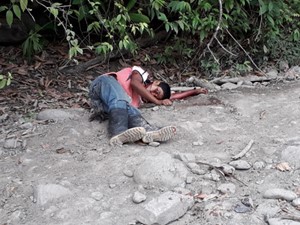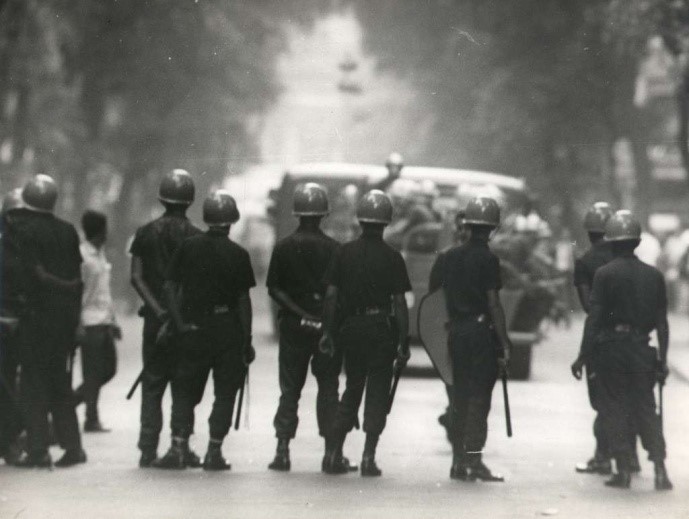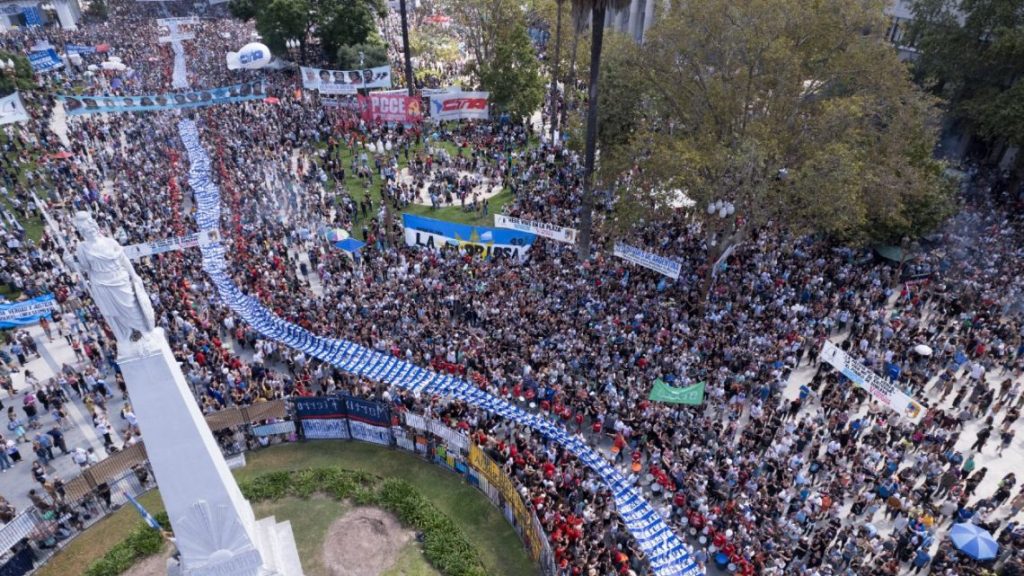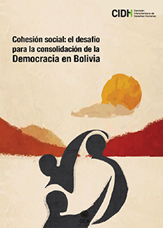This month we bring you news from Colombia, Brazil, Venezuela, Argentina and Bolivia. Highlights are:
- Colombia – A petition demanding that the Colombian authorities protect human rights defenders.
- Brazil – 2 politicians and an ex-police chief have been arrested over the murder of Marielle Franco
- Venezuela – Presidential Elections have been brought forward to 28 July, with leading opposition leaders barred from standing.
- Argentina – An Urgent Action calling for charges to be dropped in a prosecution centred on social media comments about a public figure.
- Bolivia – A new report on the human rights situation in the country has just been published.
COLOMBIA

The Peace Community of San José de Apartadó remembered the killings of seven of their members in recent years, including the boy Deimar Usaga, who was found with a bullet wound to his head opposite the Army barracks in 2019. None of the killings have resulted in prosecutions. 19 March 2024 30 year-old Nalleli Sepulveda and 14 year-old Edinson David were the latest Peace Community members to be killed. The perpetrators of the killings are believed to be Gaitanistas paramilitaries, whose presence is tolerated by the Army and the State.
Amnesty International has written to President Petro demanding that the State protect the Peace Community of San José de Apartadó and end impunity for those who have perpetrated human rights violations against members of the Community. Please sign Amnesty’s petition demanding that the Colombian authorities protect human rights defenders.
The International Crisis Group (ICG) has published an excellent analysis of the risk the ‘Gaitanistas’ (Gaitanista Self-Defence Force) pose to the ‘Total Peace’ plan of the Colombian government. The ICG warns that failure to bring the heavily armed and well-organised Gaitanistas to the negotiating table will both undermine negotiations with the ELN (National Liberation Army) and two dissident FARC (Revolutionary Armed Forces of Colombia) groups as wells as enabling the Gaitanistas to take over the territory and businesses run by their rivals, the ELN and FARC dissidents.
The UK’s UN Ambassador has urged the Colombian Government to take further steps to protect vulnerable groups including indigenous and Afro-Colombian communities most affected by conflict. ´Through the UK’s Conflict, Stability and Security Fund which has provided £79 million in support of peace agreement implementation, security, and stability in Colombia since 2015, we will continue to monitor the human rights situation in Colombia and prioritise funding interventions to help protect indigenous communities, including through the UN Human Rights Office in Colombia.’
Amnesty International Germany has awarded Colombian FEDESPAN (Federation of Santander Fishers for Tourism and Environment) its 2024 human rights award, worth €20,000, for ‘their selfless commitment to human rights’. FEDEPESAN documents environmental pollution, organises demonstrations, carries out clean-up campaigns and lobbies the relevant authorities. They are threatened and physically attacked, and their tools and boats are stolen. Despite all this the fishers of FEDEPESAN continue their work.
The Inter-American Court of Human Rights has declared the Colombian state responsible for the harassment and persecution of the José Alvear Restrepo human rights lawyers’ collective (CAJAR) for more than two decades. This is the first time that the Court has found a state to have deliberately targeted an organisation dedicated to the defence of human rights. According to the ruling, intelligence services monitored members of CAJAR and provided information to paramilitary groups that subsequently targeted them, risking the ‘life and personal integrity of the victims’.
BRAZIL

Amnesty International Brazil remembers the 60th anniversary of the military coup d’état which brought 21 years of military dictatorship to Brazil from 1964 to 1985. In the 1970s Amnesty documented 1,081 victims of torture and 472 perpetrators and documented the situation of 119 political prisoners. Letters exchanged between one of the political prisoners and a Swedish member of Amnesty International were used in the 1988 film Fico te Dendo uma Carta sobre o Brasil (I owe you a letter about Brazil ).
President Lula has upset families of the victims of the military dictatorship for blocking official remembrance events of the 60th anniversary of the coup. According to the Guardian, ‘The decision was seemingly intended to avoid irking military chiefs at a time when several senior military figures are facing jail for allegedly conspiring to stop Lula taking power after his 2022 election. That alleged plot culminated in the failed 8 January 2023 uprising, when Bolsonaro backers stormed the presidential palace, congress and supreme court in Brasília.’
Amnesty International reports on the latest news about the assassination of Marielle Franco, city counsellor and human rights defender, and her driver in 2018. Three suspected masterminds of the crime have been detained and charged. They are a counsellor of the Rio de Janeiro State Court of Auditors, a Federal Congressman and the head of the Rio de Janeiro Civil Police at the time of the murders. Two military police officers and a fireman are charged with the crime. The crime could be linked to the interests of expanding paramilitary groups, such as the militias, in Rio.
Human Rights Watch reports that Brazil´s police killed 6,381 people in 2023, the majority Black, the same number as in 2022. In a March 2024 ruling, the Inter-American Court of Human Rights found Brazil responsible for serious human rights violations by the police and that it had yet to implement all the measures ruled on police killings 6 years ago. Among them is the requirement that the investigations be undertaken by an impartial body. Brazil ranks 8th in the world for police killings relative to the size of its population.
VENEZUELA
Venezuela has announced that it will hold its Presidential Election on 28 July, earlier than expected. The accelerated timetable will provide the opposition with little time to promote a replacement for Maria Corina Machado, who has been barred from standing despite receiving almost 90% of the vote in the opposition primaries. The opposition’s second choice, Corina Yoris, has also been prevented from running, although they have now managed to inscribe ex-diplomat Edmundo Gonzalez.
Numerous Latin American nations, including Colombia and Brazil, have voiced concern over the deteriorating political situation in Venezuela. Colombia’s foreign ministry warned that recent developments in Venezuela might affect the confidence of some sectors of the international community in the transparency and competitiveness of the electoral process. Holding elections monitored by international observers is a condition for continued negotiations between the US, the Venezuelan authorities, and the Venezuela opposition parties. The previous 2018 elections were widely dismissed by international organizations as neither free nor fair.
The Venezuelan attorney general, Tarek William Saab, has ordered the arrest of Maria Corina Machado’s campaign manager and eight other of her staffers, accusing them of involvement in a violent anti-government conspiracy. Machado has condemned the arrests.
ARGENTINA

during the military dictatorship, marching on Memory Day
Amnesty International held a press conference to mark 100 days of the government of President Javier Milei. “Despite the short time that has passed, we note with concern the profound impact that some measures that have been taken have had on the lives and rights of people…To the economic impoverishment of a large part of society, this administration adds a new leadership model of non-dialogue and permanent violence.” said Mariela Belski, executive director of Amnesty International Argentina.
However, last month Amnesty International did hold a meeting with officials from the Ministry of Foreign Affairs. This was ahead of the 55thsession of the UN Human Rights Council, which Argentina is a member country. Priorities were discussed and Amnesty also raised concerns about the measures being used to address social protest and the use of lethal weapons deployed in recent months. Also concerns about gender policies and the relevance of Argentina continuing to play a key role in the sexual and reproductive rights agenda in its domestic and foreign policy.
The recent Urgent Action goes on till 12th April and is email only. Nahuel Morandini, Roque Villegas and Lucía González are being prosecuted for expressing ironic opinions about a public figure on social media. Morandini and Villegas posted on X and Facebook; they were immediately arrested and initially held in prison for 54 days. The charges against Gonzalez are based on a comment she made in a private WhatsApp group. This investigation and the charges brought against the three individuals are extremely alarming. We are calling for the charges against all three of them to be dropped.
Argentina’s Day of National Memory for Truth and Justice, observed on March 24th, commemorates victims of the military dictatorship that ruled Argentina from 1976 to 1983. “Memory Day” was marked across Argentina, with over 400,000 people marching to the Plaza de Mayo, Buenos Aires. Meanwhile Government social media accounts posted a video that called into question the number of 30,000 disappeared people, putting the focus on the victims of armed organizations during the 1970s rather than those of state terrorism.
A court has convicted 11 former officials of crimes against humanity for committing atrocities against over 600 people during the military dictatorship. The victims included transgender women, high school students, and prisoners who gave birth in captivity and whose babies were taken from them. The court ruled the former military, police and government officials were involved in forced disappearances, torture, rape and murder at secret torture centres on the outskirts of Buenos Aires.
Deputy Foreign Minister Leopoldo Sahores received the Regional Representative for South America of the United Nations High Commissioner for Refugees (UNHCR), Karmen Issam Sakhir. He reaffirmed that the protection of refugees is a matter of priority for the Argentina and a State policy reflected in the entire legal system that has remained unchanged since the advent of democracy in 1983. Ms Sakhir reiterated the UNHCR’s willingness to cooperate with Argentina to seek and ensure protection and durable solutions for refugees, stateless people and displaced persons with protection needs.
BOLIVIA

The Inter-American Commission on Human Rights (IACHR) has published a report Social Cohesion: The Challenge to Consolidate Democracy in Bolivia of the human rights situation in the country, based on observations conducted during the IACHR’s on-site visit in March 2023. The report notes that Bolivia has undergone major social changes since 2006, with an emphasis on reducing inequality for groups that have traditionally been neglected by the State. However, implementation has faced challenges that prevent full enforcement of constitutionally recognised human rights.
All the best,
South America Team – Richard Crosfield (Colombia and Brazil), David Rogers (Argentina and Chile), James Baird (Venezuela) and Graham Minter (rest of South America). And please don’t forget that you can follow us on our Facebook page and Twitter.